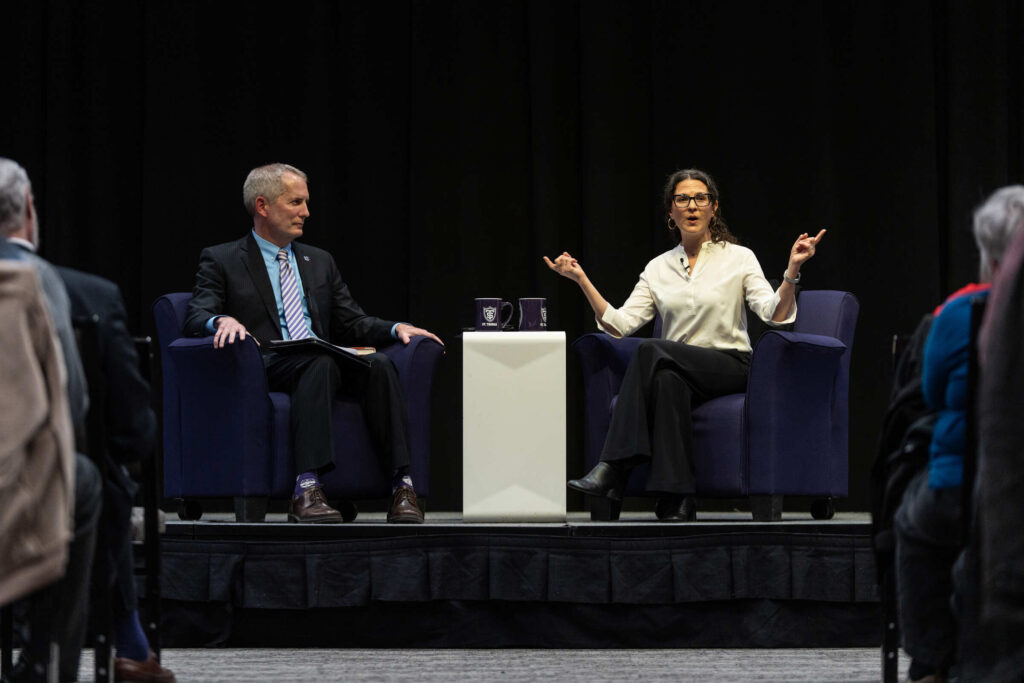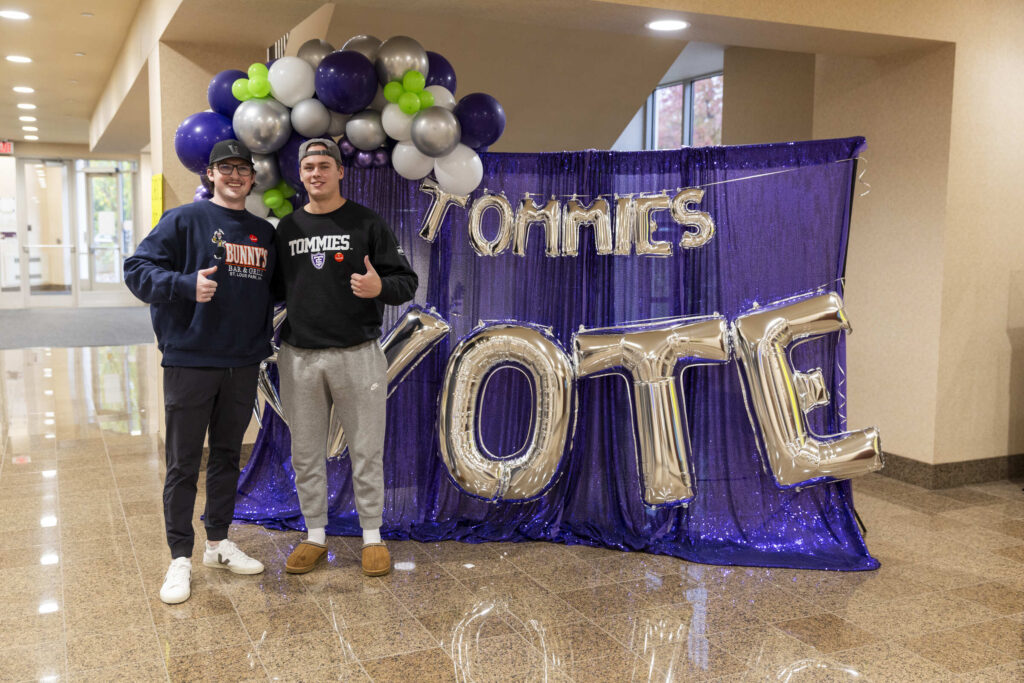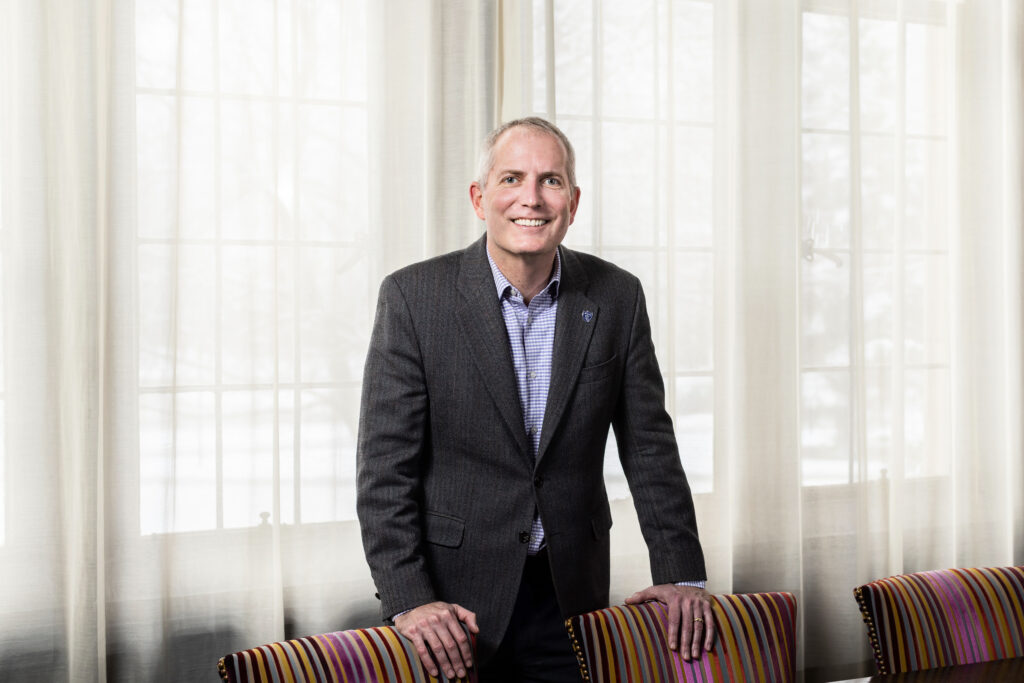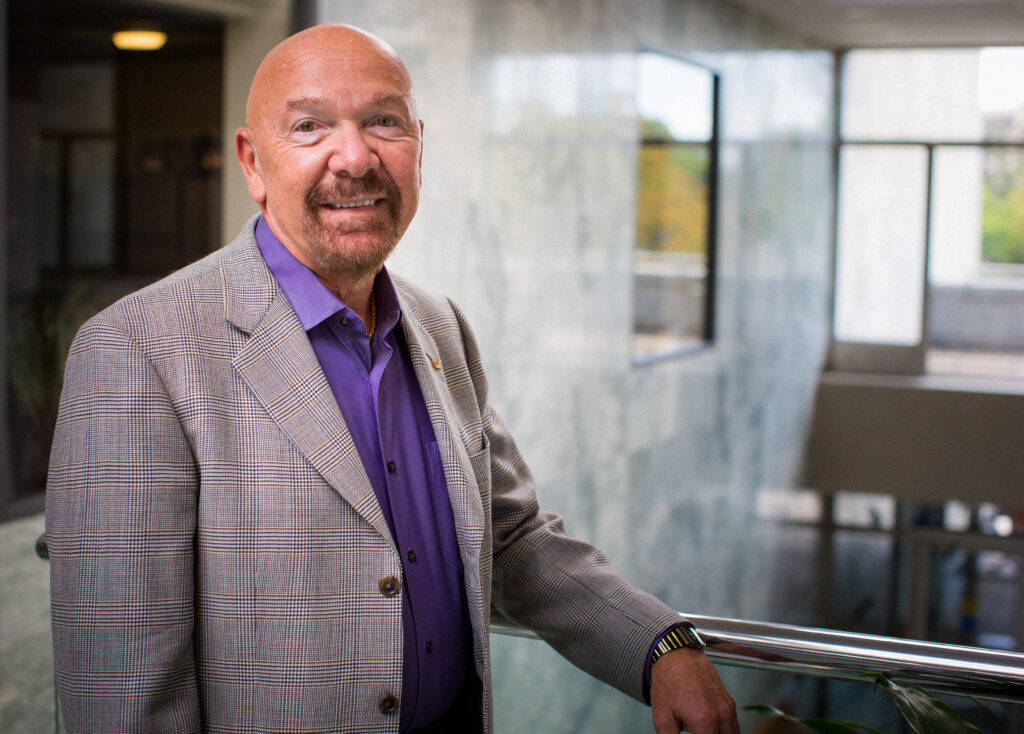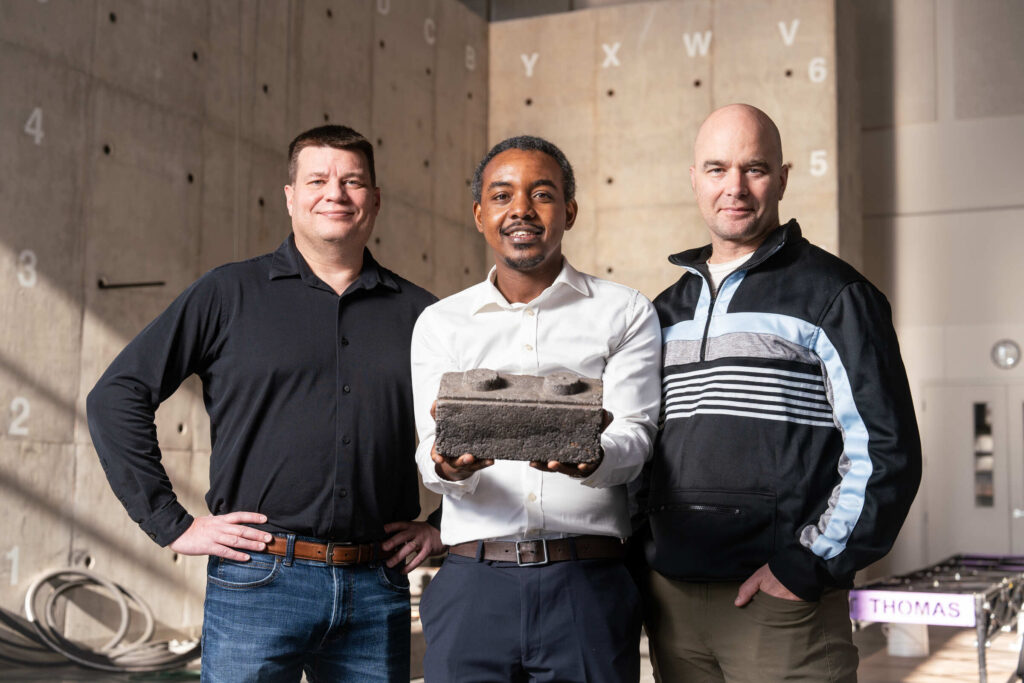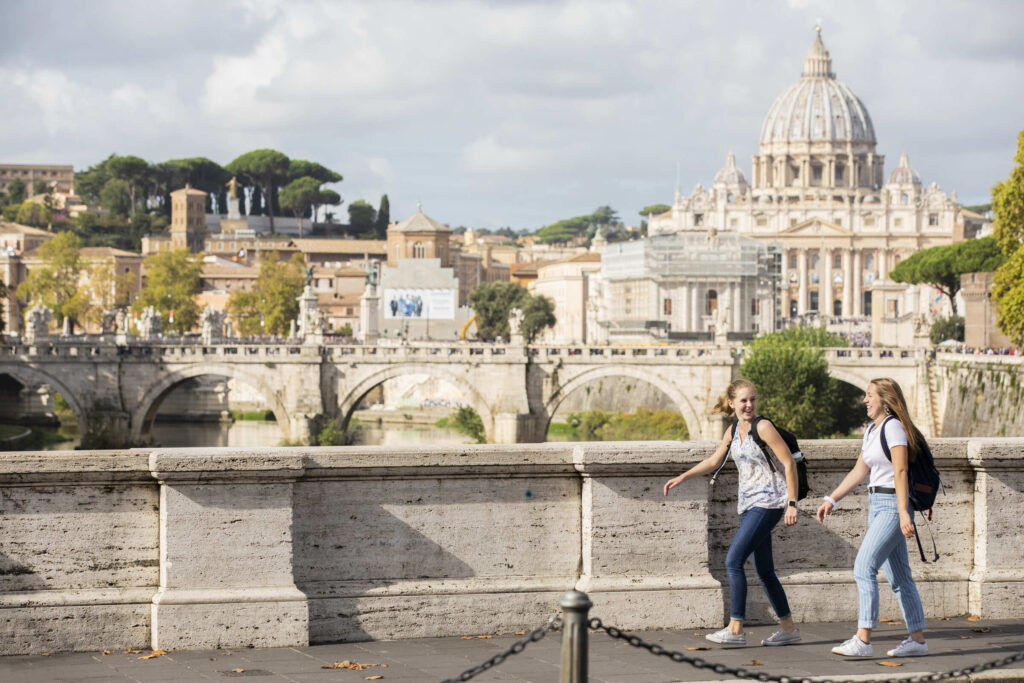The St. Thomas Board of Trustees engaged in an active series of meetings two weeks ago on the St. Paul campus, discussing a wide variety of issues and taking action on several of them. As corporate secretary for the university, I am reporting on these meetings.
To refresh your memory, the full board meets three times a year – in February, May and October. Eight committees – Academic Affairs, Audit/Finance, Board Affairs, Executive, Institutional Advancement, Investment, Physical Facilities and Student Affairs – held meetings on Wednesday, Feb. 16, and the full board met in plenary session on Thursday, Feb. 17.
Matters heard or considered by the board and its committees included the following:
Fiscal Year ’12 budget
The board approved a 2011-2012 budget that calls for tuition rate increases of 5.2 percent for undergraduate students and an average of 4.4 percent for graduate student. The budget also will include a 2 percent increase in overall funding for the faculty and staff salary pool. For details, please see the Feb. 18 Bulletin Today story.
St. Thomas began its FY12 budget process last October, when departments submitted their revenue and spending requests. The Budget Advisory Committee, comprised of administrators, faculty, staff and students, met several times in the fall and winter to review budget issues and make recommendations.
Mark Vangsgard, vice president for business affairs and chief financial officer, and his staff prepared the final budget. The Executive Committee and Audit/Finance Committee reviewed the proposed budget at their Feb. 16 meetings before making recommendations to the board, which approved the budget the following day.
At both the Executive Committee and board meetings, trustees expressed concern about the affordability of a St. Thomas education and comprehensive cost control.
Bylaw changes
The Board Affairs Committee recommended a number of changes in the university’s bylaws, and the board unanimously approved those changes.
Many changes were made to ensure the bylaws reflect current state laws in incorporation, account for modern methods of communication and employ best professional practices. Our attorney worked closely with the Board Affairs Committee in revising the bylaws. Substantive changes include:
- The board chair, vice chair and president shall be nominated by the Board Affairs Committee and elected to five-year terms by an affirmative vote of two-thirds of the trustees then in office. Previously, only a majority vote was required; the new requirement is that the election of these officers must be approved by two-thirds of the entire board (not two-thirds of the trustees present). The intent of this “supermajority” requirement is to reflect the importance given to the board’s complete confidence in these officers.
- The president shall be a Roman Catholic priest, Roman Catholic religious (e.g., a brother or a sister) or a Roman Catholic lay person. Previously, the bylaws required a Roman Catholic priest as president. In approving this bylaw change, the board agreed with the Board Affairs Committee’s “strong preference” that a priest or a religious serve as president, but acknowledged the need to find the best person possible for the job.
A number of Catholic universities recently have found it necessary to widen their presidential searches because the pool of available priests was limited. Within the past two years, for example, Seton Hall University, the University of Detroit Mercy and the Catholic University of America appointed laypersons as presidents. In the case of Seton Hall, the initial search to find a Catholic priest was unsuccessful and a second search was conducted.
- The Executive Committee shall comprise the chairs of each of the seven standing committees and additional members appointed by the Board Affairs Committee. The president will be an ex-officio member of the Executive Committee. This bylaw change clarifies previous practice, under which the board chair appeared to appoint additional members of the Executive Committee and the members of other standing committees. In reality, however, the Board Affairs Committee appointed Executive Committee members.
- In the event of the chair’s death, resignation, removal, absence or other inability to act, the vice chair shall have the powers and fulfill the duties of the chair, except for any powers and duties assigned by the Executive Committee to one or more other trustees. This is new language and clarifies succession issues involving the chair.
- In the event of the president’s death, resignation, removal or inability to act, the Executive Committee will designate a person to serve as “acting president,” performing duties as determined by the committee. This bylaw was changed to make it clear that an “acting president” would have only the powers and duties as the Executive Committee would specify.
Residential housing by gender
St. Thomas has single-gender traditional-style residence halls (e.g., Brady and Dowling), which house only women or only men, and mixed gender apartment-style halls (e.g., Morrison and Flynn) where women and men generally are assigned to separate floors within the same building.
On occasion, the Board of Trustees has approved situations that allow men and women to live on the same floor of an apartment complex. An example of this situation is the eighth floor of Morrison Hall where women live in one cluster of apartments and men in another cluster.
The board last week approved the assignment of both men and women to live in separate apartments on the third floor of 2085 Grand Ave. in the fall. The building, which has been occupied by St. John Vianney Seminary the last two years, will be operated by Residence Life and occupied by St. Thomas students as part of the Sophomore Experience Program. In order to achieve gender balance for the program in the three-story 2085 Grand building, one floor will be assigned to men, one to women and one to men and women living on opposite ends of the hallway and separated by staff apartment units.
Opening Doors capital campaign update
Father Dease and Dr. Mark Dienhart, executive vice president and chief operating officer, reported to the Institutional Advancement committee and the board that St. Thomas has raised $430 million in gifts and pledge towards the $500 million Opening Doors capital campaign.
The total includes $40 million since last July, when an anonymous donor pledged to match any gifts of $1,000 or more up to $25 million. As of the board meeting, $20 million had been pledged – resulting in a $20 million match. The pledging period for the match ends at midnight March 1. (The $25 million challenge grant was met on March 1, with nine hours to spare, netting the university a total of $50 million toward the Opening Doors capital campaign.)
“Flag Team” presentation
Three members of the St. Thomas “Flag Team” – Susan Anderson of Academic Counseling and Karen Lange and Sister Sharon Howell of the Dean of Students Office – gave a presentation.
The team identifies students who seem to be having difficulty in and out of the classroom and determines how to more effectively support them so they are successful members of the St. Thomas community.
Website presentation
Dr. Sam Levy, vice president for information resources and technology, and Elizabeth Houle, director of Web and Media Services, gave a presentation about the university’s website.
Trustees expressed an interest at their October meeting about such a presentation, wanting to learn more about the St. Thomas website and how it is used for purposes such as providing news and information and recruiting students.
Other committee issues
Committees of the board discussed a number of issues in their Feb. 16 meetings, including:
- Academic Affairs: Lisa Burke and Lisa Guyott from the Opus College of Business gave a presentation on the use of Google ads to generate interest among prospective students.
- Audit/Finance: In addition to the FY12 budget, the committee discussed faculty and staff compensation issues, in comparison to market rates, and heard a presentation from Dr. Donald Weinkauf, dean of the School of Engineering.
- Investment: It heard updates on the St. Thomas portfolio and reviewed the performance of external firms that manage the university’s investments.
- Physical Facilities: There was a progress report on Anderson Student Center construction.
- Student Affairs: It discussed strategies for revenue generation in the new student center and congratulated football coach Glenn Caruso on being named Liberty Mutual Coach of the Year for NCAA Division III.
